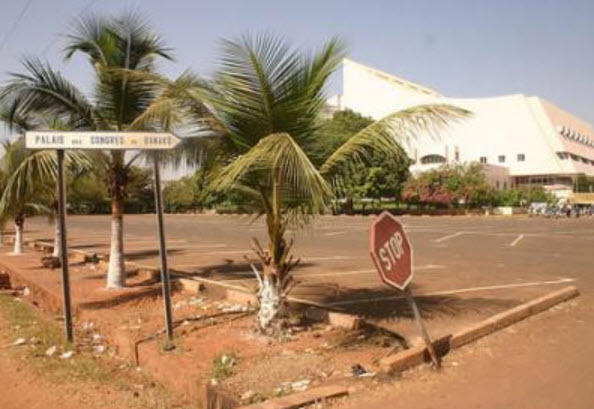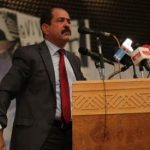The international community seems intent on “restoring democracy” to Mali. But it was the pre-coup status quo that led to collapse in the first place.
By Joe Penney

Bamako, Mali:
Both the Malian people and the international press have been almost unanimous in lauding the French military campaign in Mali, which started in earnest on January 11. The ultimate French goal appears to be returning Mali to its status quo circa 2011 – i.e. before the start of the National Movement for the Liberation of Azawad (MNLA) campaign in the north. In accordance with this plan, Mali’s interim president, Dioncounda Traoré, recently announced imminent elections for July 2013.
Thus France will claim to have completed its dual objectives of regaining Mali’s ‘territorial integrity’ and accomplishing a ‘democratic transition’. The French then plan to withdraw smoothly, replacing its fighters with a UN peacekeeping force and conceding the presence of some jihadist fighters in the Adrar des Ifoghas Mountains.
Yet, despite recent triumphalism, France’s President François Hollande’s long-term plan for Mali is remarkably short-sighted. Restoring Mali’s ‘democracy’ by reverting to the pre-coup status quo poses a major threat to Mali’s long-term future. After all, it was precisely this pre-coup status quo that allowed the country’s dramatic collapse to begin with.
Mali’s borders, original constitution, and official language are all inherited from its former avaricious French colonial masters. Its cumbersome colonial-era boundaries – resembling two large triangles stuck hastily together with a thin strip of land in the middle – has proven particularly significant during the recent conflict. 90% percent of the population resides in the southern triangle, whose crops feed the whole country, while the northern triangle, which accounts for two-thirds of Mali’s territory, consists almost entirely of sparsely populated desert. Mali’s political and economic structures were also built using models left by the French colonial administration; they were not designed to benefit the Malian people, and the economic situation is liable to collapse at any time.
Yet many in the West are calling for a return to the politics of the past, and economic reform seems absent from any plan to rebuild Mali.
Mali: “model of democracy”
The dominant media narrative holds that pre-coup Mali was a “model of democracy”. A relatively free press and the material trappings of constitutional democracy go some way to explaining this assessment. More significantly, an elected president (Alpha Oumar Konaré, whose ascension to power ended three decades of military rule) did not seek to stay in power after his second term ended in 2002 – in full accordance with the Malian constitution. “It was from this moment that Mali was considered a model of democracy,” Ndiaga Loum, professor of law and human rights at the University of Québec, told Think Africa Press.
But arguably, Mali’s label as a ‘model of democracy’ – despite its modest democratic achievements – is merely a result of low standards. Loum continued: “Western states have extremely low criteria for judging democracy [in Africa]. The principal criteria are elections and the links that the West makes with the countries are through the leaders they meet with.”
After ten years of Mali’s ‘democratic model’, these failings have led many to question whether Mali’s leaders or its foreign backers are actually interested in democracy. “The [wellbeing of the] country is not in [the politicians’] minds, it’s not in their hearts. The country is not in their souls,” asserts Bissau-Guinean historian Mario Cissoko. “The politicians are caught between personal and national interests, and they have chosen personal interests.” These sentiments stand in stark contrast to American and French diplomats’ nostalgic views of deposed president Amadou Toumani Touré and his government.
As Loum points out, “It’s not enough to have institutions. It’s not enough to have elections. It’s not enough to have ministers dressed in business suits and not military uniforms to say it’s a democratic model. The error analysts make is to confuse a country in a democratic transition with a truly democratic state.”
Poor literacy is also a substantial problem. Almost 70% of Malians cannot read or write at all. Most are not fluent in French, and those who are speak it as a second language. In 2012, only 12% of secondary school students passed their graduation exam, which is standardised throughout many francophone countries. Naturally, low literacy inhibits political participation by Mali’s citizens, without which there can never be true democracy.
Weathering the economic storm
Mali’s inadequate political system may have collapsed on itself after a decade of decline under Touré, but the economy has proven remarkably resilient to the loss of two-thirds of its territory and the demise of central government. Indeed, Mali’s GDP will likely grow this year. But the Malian economy’s fragility cannot be understated, and nor can the severity of the consequences should it implode.
90% of the population survives from agriculture (many from subsistence farming), and production for local consumption accounts for the lion’s share of the GDP. Until recently, Mali’s two main exports of cotton and gold – alongside foreign aid and loans – financed the government in lieu of a comprehensive tax system.
Despite reports to the contrary, Mali’s economy actually fared better in 2012 than in 2011 – despite the political and security crises. This is because Mali’s economy is based almost entirely in the government-controlled south, where healthy rains boosted cotton and other agricultural production beyond 2011’s figures, and gold mining continued to grow.
But looking ahead, Malian economist Alhousseini Maiga is not optimistic. “The economic bases are not solid. Next year, if there is a bad harvest [and] a famine… everyone will migrate to the cities. This will spike unemployment and create more insecurity.” He added, “Mali does not control whether or not it has a good harvest, it depends on the rain”. Indeed, Mali’s GDP growth rate over the years reads like a weather report, with no period of sustained growth since independence.
Mali’s economy has been heavily influenced by the International Monetary Fund (IMF) and World Bank since 1968, when Moussa Traoré staged a coup d’état against Mali’s left-leaning first president Modibo Keita. Most World Bank and IMF plans are based on research which inherently yields inaccurate results – running for only a couple of years, and never including a comprehensive reform of Mali’s crucial agricultural sector. As Maiga surmises, “there is no economic plan touching the topic of modernising the agriculture sector”.
The gold sector (Mali’s primary export earner) has kept the public sector afloat since foreign aid was suspended after the coup d’état on 22 March. But Maiga explains how uncertain security renders this sector extremely fragile as well. “With one exception, all gold mining companies in production in Mali are foreign companies. All it takes is two or three companies to pull out – and it almost happened this year after the coup – and the state will immediately lose its financing, putting hundreds of thousands of people out of jobs.”
States built on sand
All international actors promote a return to constitutional democracy in Mali. But how can something be restored that never truly existed in the first place? Surely the international community cannot support a return to the rotten status quo that brought about political collapse in the first place.
While much media attention is devoted to “victims of Sharia law”, the true roots of Mali’s fragility seem lost in the fray. The most glaring failure is the absence of a plan to stabilise the Malian economy whose collapse would have severe and immediate repercussions for both Mali and its neighbours. Equally, the economies of many of these neighbours are hardly sturdy enough to stave off a similar implosion themselves.
The West’s response to the crisis in Mali has been focused exclusively on war efforts. While this has pushed back the militants, it has also reinforced pseudo-democracies in Mali’s neighbours: Mauritania, Burkina Faso and Niger. With no sustained major literacy or industrialisation effort in any of these countries since independence, it is hard to imagine efforts to deal with Malian crises will ever be entirely successful without addressing the instability of the region as a whole.
So, as the Malian army and its African counterparts prepare to replace French forces in a war that will shape West Africa’s trajectory for years to come, what remains clear is that any effort to deal with the immediate present without looking at the larger picture will be doomed. Mali cannot be rebuilt on the same sand upon which it collapsed.
